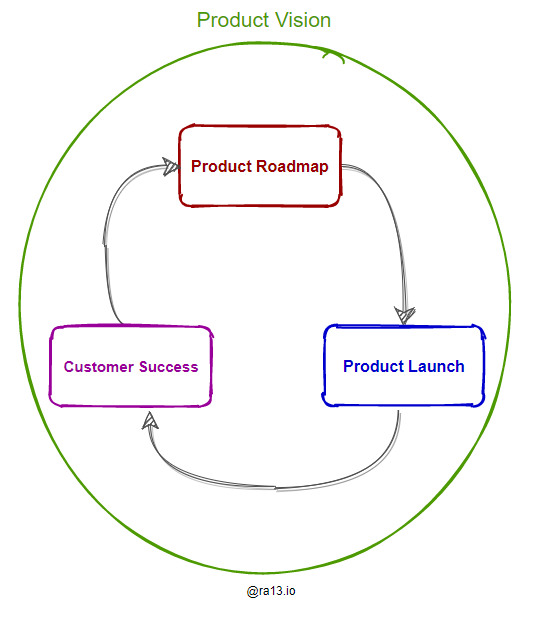- Like
- SHARE
- Digg
- Del
- Tumblr
- VKontakte
- Flattr
- Buffer
- Love This
- Save
- Odnoklassniki
- Meneame
- Blogger
- Amazon
- Yahoo Mail
- Gmail
- AOL
- Newsvine
- HackerNews
- Evernote
- MySpace
- Mail.ru
- Viadeo
- Line
- Comments
- Yummly
- SMS
- Viber
- Telegram
- JOIN
- Skype
- Facebook Messenger
- Kakao
- LiveJournal
- Yammer
- Edgar
- Fintel
- Mix
- Instapaper
- Copy Link
The ‘end-user era is here’ as explained in detail by Openview Partners, and enterprise software is charging the way. Gone are the days when software was thrusted from the C-Level down to practitioners. With that came the enormous burden of a contract and that dreaded lock-in period. The usefulness of the product came secondary to the attractiveness of the product brief. But now the trend has shifted to the other end of the spectrum. Usage and adoption of the product matter the most.
There is a shift in customers needing demonstration before talking, with early access to the product becoming the lay of the land. Such an acquisition model means shorter sales cycles and more efficiency in lead qualification, with complete emphasis on the customer experience. The quicker time to value creates sustainable growth and lowers cost to acquisition. But there is more to it than customer acquisition.
The real essence of ‘product led growth’ comes to the forefront, when you look at its different components. It can be best described as an end-user focused model that relies on product features and usage as the primary drivers of customer acquisition, retention, and expansion. One way to think about how to achieve product led growth, is to think through the relation between the four growth tenets – product vision, roadmap, launch, and customer success, as shown below. You can also check out this session recording, where I walk through these tenets in more detail.

If users are finding products on their own, what remains of the role of the sales team in such a growth model? The answer to that is Sales becomes an expansion play now. If you are meeting the right requisites from the product side that is utilizing platform thinking and providing early access, Sales play a vital role in driving revenue. The major shift comes in the importance of understanding the customer needs and providing tailored recommendations on the use-case.
The expansion play is dependent on the core fact of driving usage of the product and creating power users. Sales play the role of guiding feature adoption and nurturing the post-trial funnel. Because even after a free trial, you have cohorts of users in different parts of the journey. One of the cohorts might need some help or training in overcoming some product roadblocks. While the other cohort might need more clarity on the long-term value and the return on investment. And there may be few users who just need that nudge or that well-timed follow-up. So, the core responsibility of the Sales team is now to find and target such user cohorts and drive plans to engage with them. Overall, if executed well, this strategy can lead to a better customer experience with a lower cost of acquisition.
The above works very well if the product is easy to use and it is either ‘self-service’ or ‘transactional’ as described by chaotic-flow here. Things are not straightforward when you move into the enterprise. Not all your leads will come via a free trial or early access process. The product is more complex, more expensive, and has more than one kind of user. The roles and responsibilities of the users vary and that is what determines how they interact with the product. Sales play a vital role here in navigating and mapping the organization and its needs, so that we can get the product in front of the right user in the shortest amount of time.
The best way to think about this new role is to treat Sales as consultants evangelizing best practices, efficiencies, and novel trends in the market. The sales teams need to equip themselves with a different type of storytelling to describe real-world use-cases and benefits to the user. This will help in educating the personas on the product, leading to better engagement and adoption. Lastly, since they know the power centers in the organization, Sales can help pitch the product vision and roadmap to the best set of personas, enabling them to make long-term decisions.
A potent force in describing the acquisition strategy is the presales team consisting of Sales Engineers and Solution Architects who embrace platform thinking and promote it in the market. With an in-depth knowledge of the product, they can build solution concepts and custom demos. These help the prospect visualize future usage and quickly adopt the product post-purchase. It also helps in thorough proofing and not going through lengthy RFP documents to select the best tool.

Sales, as a result, have an important role to play in the success of a product led growth model. As seen above, they provide valuable feedback loops with the ‘product launch’ and ‘customer success’ tenets of the growth model. By being end user-focused and promoting meaningful value through usage of the product, Sales has this unique opportunity to remove friction from buying cycles.
To learn more about how ‘Dell for Entrepreneurs’ can help scale your start-up, check Dell.com/startups


